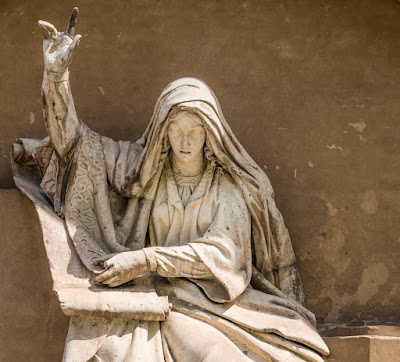And the people of Israel did what was evil in the sight of the LORD and served the Baals. And they abandoned the LORD, the God of their fathers, who had brought them out of the land of Egypt. They went after other gods, from among the gods of the peoples who were around them, and bowed down to them. And they provoked the LORD to anger.
Judges 2:11-12
Then the people of Israel cried out to the LORD for help…
Judges 4:3a
Then the LORD raised up judges, who saved them out of the hand of those who plundered them…
Judges 2:16
…the LORD routed Sisera and all his chariots and all his army before Barak by the edge of the sword. And Sisera got down from his chariot and fled away on foot. And Barak pursued the chariots and the army to Harosheth-hagoyim, and all the army of Sisera fell by the edge of the sword; not a man was left.
But Sisera fled away on foot to the tent of Jael, the wife of Heber the Kenite, for there was peace between Jabin the king of Hazor and the house of Heber the Kenite. And Jael came out to meet Sisera and said to him, “Turn aside, my lord; turn aside to me; do not be afraid.” So he turned aside to her into the tent, and she covered him with a rug. And he said to her, “Please give me a little water to drink, for I am thirsty.” So she opened a skin of milk and gave him a drink and covered him. And he said to her, “Stand at the opening of the tent, and if any man comes and asks you, ‘Is anyone here?’ say, ‘No.’” But Jael the wife of Heber took a tent peg, and took a hammer in her hand. Then she went softly to him and drove the peg into his temple until it went down into the ground while he was lying fast asleep from weariness. So he died. And behold, as Barak was pursuing Sisera, Jael went out to meet him and said to him, “Come, and I will show you the man whom you are seeking.”
So he went in to her tent, and there lay Sisera dead, with the tent peg in his temple.
Judges 4:15-22
Sandwiched in the book of Judges is a drama that would rival any Hollywood production.
I hope you never see God’s word as boring, because this story is far from it.
It’s filled with intrigue, mystery, war, deceit, murder, and “the good guys” come out on top!
In many ways it is a gory story (not that this is good); and, on top of all this, the protagonists in this movie are women – two of them.
So, don’t ever think God over-looks the strengths of women…
Here’s the story from above in a nutshell (for the entire story read Judges 4 and 5).
Let’s look at the cast of characters and you try to discern who you are in this drama. Ask yourself: Who am I in this story; and, what can I learn from each of these folks…
Israel – God’s children were back in a cycle of defeat to a Canaanite king because they were doing “evil in God’s sight”. After 20 years of bondage, they were FINALLY crying out to God for help.
Deborah – God provided a judge for the people, who also happened to be a prophetess. Deborah was a strong leader, who uncompromisingly spoke the truth of God’s message to the people. She didn’t waiver, or hold back AT ALL.
Barak – God intended to bring the Israelites victory through this man. However, Barak was a wimpy warrior. Barak wouldn’t go to battle against the Canaanites unless Deborah came to war with him. Deborah assured him Israel would still receive the victory, but a woman would get the credit.
Enter Jael – When the Canaanite hero, Sisera, realized that his amazing army was defeated by the smaller, inadequate Israeli army, he took off on foot. Sisera thought he would find refuge in Jael’s tent. Jael happened to be the wife of a man who was the descendent of Moses’ in-laws, and this family was “at peace” with the Canaanite king. Jael was not stupid. If Sisera was on foot, undoubtedly she knew the Canaanite’s had lost the battle. She probably figured when all was said and done, her family better come out on the right side. So she invited Sisera into her tent and gave him a nice warm cup of milk that had been set aside to curd – a very nurturing act, which spoke to the General of safety and hospitality. After tucking him in under a rug and wishing him a nice rest, Jael proceeded to hammer his head with a tent peg to the floor and give the Israelites complete victory. For her act of deception, Deborah wrote a song that blessed Jael among the women (5:24). I took note that there’s a lot of controversy over her actions in the commentaries I read.
Most blessed of women be Jael,
the wife of Heber the Kenite,
of tent-dwelling women most blessed.
So, back to the question I asked: Who do you compare with in this drama?
Deborah? Do you speak God’s message truthfully and boldly in spite of the nature of it – or whether others will be offended by it? Deborah’s message is “speak up…be confident in God’s Word…live it…obey it…no matter the repercussions…for God can not lie, nor can He change…
Can’t say this is me…I find myself shying away if I think others might disagree. Deborah’s calling is a high calling…but, it can be so hard to live it out…
How about, Jael? Can’t say I associate with a deceitful murderess, either. Her storyline tells us to do whatever is necessary to protect ourselves at all costs.
Then why this devotional thought about two women to whom it’s difficult to relate?
Because, there is another woman in the story, where I find some correlation – the woman, who is considered to be the bride of the Lord. The woman who cycles in and out of defeat. How often I find myself trapped by my own choices. But for the grace of God…
The moral of this story is not that God nods His approval on deceit, or murder.
The end-story, the main life lesson, is that God’s will is assured.
What He promises will be accomplished and He can, and will, use anything at anytime in order to bring His promises to fulfillment.
(think of the story of Joseph, for example…)
What I really want you to hear is this –
God is intimately involved in your life. He has a plan and a purpose for you.
Nothing gets in the way of God’s purposes – not wimps, nor warriors.
He will not let you remain in defeat when you cry out to Him.
He will always provide a Deborah, and, yes, even a Jael, if He must.
For, quite often, you and I are Israel.









